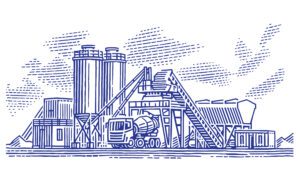Five Emerging Trends As Millennials Take Over Manufacturing
A version of this article was originally published in Forbes.
Millennials are projected to overtake baby boomers as America’s largest generation after they became the largest generation in the U.S. workforce in 2016. At a time when a significant percentage of the industrial world’s current workforce is at or nearing retirement, millennials — the oldest of which will turn 38 this year — are starting to transition at a rapid rate into management positions.
What should the industrial market in general, and specifically the manufacturing industry, anticipate as millennials take charge?
1. Ubiquitous, instant connectivity and real-time collaboration
We are all very aware that millennials’ use of technology clearly sets them apart from previous generations. According to the Pew Research Center, more than 9 in 10 own a mobile device. Nearly 100% say they use the internet, and 19% of them are smartphone-only internet users, meaning they own a smartphone but don’t have broadband internet service at home. As the first generation to have truly grown up with apps, social media and immediate access to any and all information at their fingertips, they value and expect the type of connectivity that only modern digital tools can provide.
This is also the first generation to enter the workplace with a better understanding of new technology as business tools than older, more senior employees. They will want the same connected experience they have in their personal lives in the workplace and will expect the ability to be digitally connected with their teams quickly via different formats.
In simple terms, the six-inch binder, walkie talkies and clunky legacy enterprise software assets won’t do the job as the industrial market’s execution suite of tools.
2. Enhanced productivity and efficiency without compromising safety or quality
As they move into managerial positions, millennials will learn the nature of shift work, where employees, for the most part, don’t take work home with them, and an efficient handoff from one shift to the next is critical. Since most front-line workers aren’t typically connected to their jobs unless they are on-site, millennial managers will want to leverage technology that ensures their teams are working as efficiently as possible while clocked in.
In the longer term, as advancements in automation and artificial intelligence reimagine the role of industrial work and upskilling/reskilling efforts become mainstream, semi-skilled workers will become knowledge workers and less physically tied to the factory floor. Instead, they’ll be able to oversee and manage digitally connected machines and equipment from a distance, enabling more flexible, less time-bound work.
3. Mobile devices everywhere on the front lines
With the costs for smartphones, tablets and other similar mobile devices for the enterprise continuing to decrease, access for deskless workers will become more affordable — which, in turn, will lead to an increasing need for mobile-based worker apps. With millennials starting to increasingly run the show, mobile-first technologies will be championed at an accelerated rate that will become more of the norm over the next decade, replacing legacy console-based systems.
Mobile devices on the factory floor not only make it easier to collaborate, but they can also improve worker and customer safety.
This is especially important for remote or distributed workers who may not have easy, timely access to assistance or expertise nearby. For example, a worker who logs an equipment reading that indicates a dangerous situation can quickly initiate an instant video conference call with team members or off-site experts, provide visual context for the situation and receive immediate guidance.
Bottom line: There are no more excuses since these mobile devices are robust, cost-effective and secure.
4. Sustainability and purpose as work motivation
According to a survey from clean energy platform Swytch (via HR Dive), 70% of millennials said a company’s sustainability record would impact their decision to stay with a company for the long haul. Many millennials want to work for an organization with a mission and purpose they believe in, and they likely prefer to work at a company that is transparent about its ecological impact.
As millennials gain ground in manufacturing management positions, the production efficiencies enabled through technology — and its ability to document gains made or waste averted — will be key to that transparency, as well as a reason for them to stay loyal to a company and a motivating factor for the Gen Z employees they’ll need to recruit to join their ranks.
5. Consumer choice explodes for products and for careers
In addition to the obvious demographic/age transformation going on in the industrial workforce, another powerful market force is occurring: Mass-market products are no longer what consumers want. They want highly personalized products with features that rapidly change in terms of styles, colors, sizes and flavors. This is being driven by millennials and will accelerate with Gen Z.
Think about how quickly fashion trends come and go, the exploding number of craft beers in the market and all the features you can have on a new car. Choice is the new norm, and manufacturers must have far greater agility in terms of the ability to change when, where and how long they manufacture a product. Referred to as the “batch size of one” in the industry, it is a reality and a soon-to-be norm.
The same applies to career choices. No longer will employees stay at a company for 10 or 20 (let alone 30) years. According to a 2019 Deloitte study, 49% of millennials would, if they had a choice, quit their current jobs in the next two years, up from 38% in 2017. Industrial companies need to rethink how they hire, retain and train both junior and midlevel millennials at a far greater velocity than ever before. Modern digital tools will be a recruiting competitive weapon in the near term and a “must have” in the medium term.
Just as baby boomers effected change in the workplace as they began to fill management and executive roles, so, too, will millennials have an impact on the technology systems and solutions deployed in factories and on shop floors everywhere.






